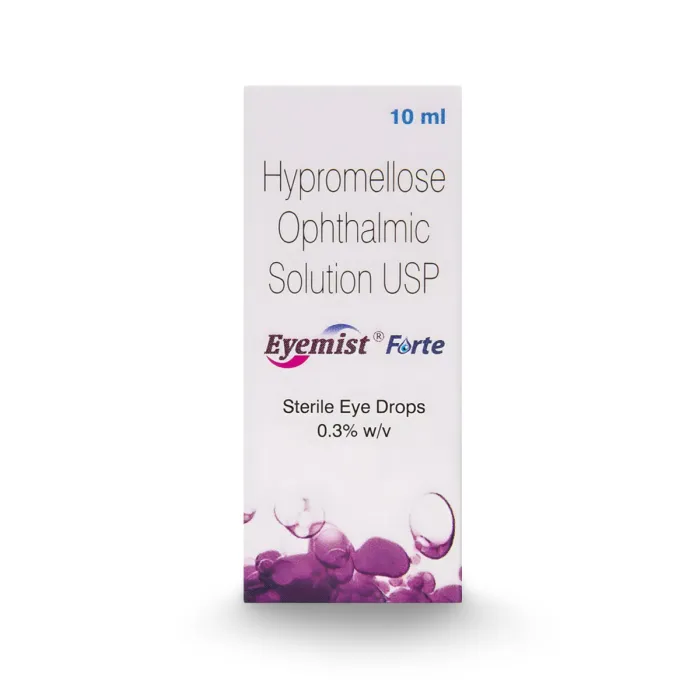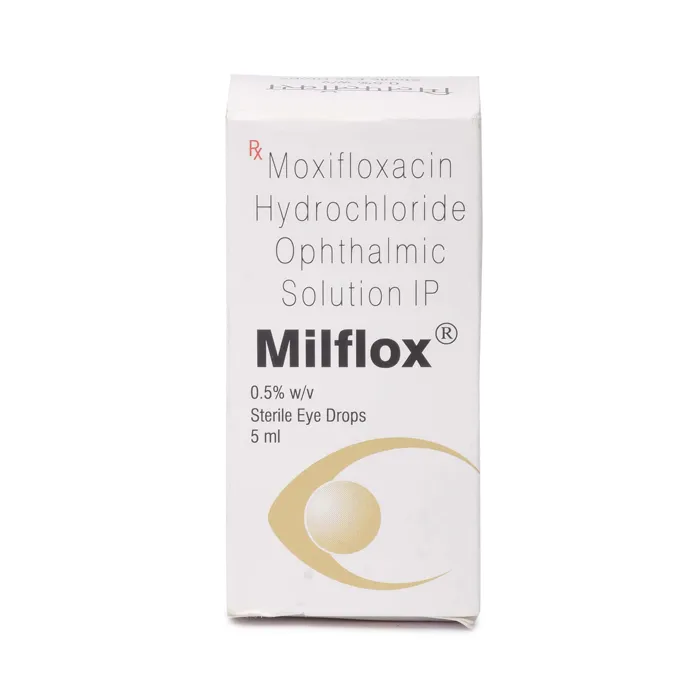Eye floaters are a common occurrence among several individuals and can be a cause of discomfort.
It refers to the small dots in a person’s vision and is generally harmless in nature.
The floaters can be of several types, which include black floaters or white floaters.
Some may also experience circular eye floaters or sudden floaters in one eye.
There are several causes due to which a person may experience eye floaters.
This article will discuss the types, causes, and treatments of eye floaters in detail.
What Are Eye Floaters
Eye floaters, also called vitreous floaters or simply floaters, are small dots or specks in the line of one’s vision.
These specks usually float away when a person tries to look directly at them.
Eye floaters are particularly noticeable when a person looks at a bright and evenly lit background, like a blank wall or the sky.
These floating dots are present in the vitreous humor, which is a clear and gel-like substance that fills the interior of your eyes.
Although it does not require treatment, a person might need surgery in some cases.
It can appear in cobweb shapes, circles, rings, small lines, or in other irregular shapes.
Buy lubricating eye drops to improve the condition today!
Save up to 90% on your medicine bills

Eyemist Forte 10 ml

Milflox 0.5% 5 ml

Restasis 0.05% Ophthalmic Emulsion

Pred Forte 10 ml
Types of Eye Floaters
The type of eye floaters can differ in shape or color for every individual. These types of eye floaters are as follows:
- Black floaters in eye: The black floaters in the eyes are the most common type of eye floaters. It appears as a dark speck or wavy and twisting lines. It happens due to age-related changes in the vitreous humor.
- Circular eye floaters: This type of eye floater appears as round, doughnut-shaped objects that drift across one’s vision. These usually happen due to protein or cellular waste clumps in the vitreous humor.
- White eye floaters: These are generally more transparent and appear as cloudy or translucent shapes in one’s vision. They can happen due to tiny calcium deposits in the vitreous humor.
- Sudden floaters in one eye: Some individuals may experience sudden floaters in one eye, which can be concerning and indicate a more serious issue. It can be a major sign of retinal detachment.
What Causes Eye Floaters
Eye floaters can happen due to different causes in different individuals, among which aging is one of the most common ones.
Some individuals may experience eye floaters due to Diabetes, eye tumors, parasitic infections, Cataract surgery, and pregnancy.
Sometimes, a person might experience eye floaters due to retinal detachment.
Let us discuss the above-mentioned causes of eye floaters in this section.
Diabetes Eye Floaters
According to research, if you have Diabetes, it becomes a risk factor for experiencing eye floaters.
Although the condition does not cause eye floaters itself, developing Diabetic Retinopathy increases the risk of eye floaters.
Diabetic Retinotherapy is an advanced form of Diabetic eye disease, which can damage the retinal blood vessels.
The damage to these blood vessels can cause eye bleeding, resulting in Diabetic eye floaters.
Eye Floaters Due to Tumor
Individuals who have eye tumors often might experience eye floaters.
Since eye tumors do not have particular symptoms, it is often found during regular eye checkups.
In the cases where symptoms are present, it is usually blurry vision or floaters and shadows in the field of one’s vision.
Eye Parasite Floaters
Research states that parasitic worms can make their way to the vitreous cavity in rare cases.
When it reaches the vitreous cavity, it casts a shadow on the retina, which results in the floaters.
The eye parasites usually responsible for eye floaters include Microfilariae and Cysticercosis.
Uveitis Eye Floaters
Uveitis is an eye infection that can often lead to vision loss if it is not treated properly.
According to a study, Intermediate Uveitis can cause symptoms like blurred vision and eye floaters.
This type of Uveitis often affects the retina of the person and is also known as Retinitis.
Eye Floaters and Headaches
 Source: Alona_Siniehina_from_Getty_Images
Source: Alona_Siniehina_from_Getty_ImagesSome individuals experience eye floaters along with headaches, especially Migraines.
The American Academy of Ophthalmology (AAO) states that floaters, due to Migraines, look like flashing lights or lightning streaks.
These floaters may appear for days or weeks whenever the Migraine is present.
The changes in blood flow during this time pull the vitreous on one’s retina, causing eye floaters.
Retinal Detachment Eye Floaters
One of the most serious causes of eye floaters is retinal detachment or retinal tear.
This condition arises when the retina separates from the back of the eye and comes in the line of vision.
Eye floaters due to retinal detachment are often accompanied by light flashes and a shadow over one’s vision.
Are you curious to know about the causes of eye floaters in a detailed manner? Read What Causes Eye Floaters? Find Out All the Possible Causes.
Eye Floaters During Pregnancy
When a person experiences Latent Ocular Toxoplasmosis during their pregnancy can cause decreased vision and floaters.
Ocular Toxoplasmosis refers to a disease due to an infection by the parasite Toxoplasma gondii.
When the parasite reaches the retina, it enters the line of vision, causing eye floaters.
Floaters After Cataract Surgery
Some people might notice floaters in their line of vision after a day of their Cataract surgery.
These floaters can stay for a few days after the Cataract surgery or might last for months.
This can happen due to changes in one’s vitreous humor or disturbances during the surgical process.
If you want to learn more about the connection between eye floaters and Cataract surgery, read our article on Floaters after Cataract Surgery.
Eye Floaters Treatment
Although eye floaters might not require treatments in most cases, some might seek relief from the symptoms.
Home remedies like using pineapple for eye floaters, hydration, eye exercises, and sunglasses can help in the treatment.
Doctors may also suggest eye drops for floaters to eliminate the floaters faster.
This section will discuss the above-mentioned treatments of eye floaters.
Home Remedies for Eye Floaters
 Source: Marko_Obrvan_from_Pexels
Source: Marko_Obrvan_from_PexelsSince eye floaters can happen due to the buildup of toxins in one’s eyes, staying hydrated can be beneficial.
Eye exercises like rolling or massaging the eye over the eyelids can help reduce eye strain and eye floaters.
Wearing sunglasses in the bright sunlight can also reduce the visibility of the eye floaters.
According to a study, pineapple consisting of Bromelain can also effectively treat eye floaters.
Do you want to know more about the natural treatments of floaters? Read our article How to reduce floaters in eyes naturally? A Comprehensive Guide.
Eye Drops for Floaters
There are no particular eye drops or medications that can eliminate or treat the floaters.
However, floaters can cause constant discomfort in a person, which might require soothing.
Thus, doctors might sometimes suggest eye drops for dry eyes or lubrication, which can provide temporary relief.
If you really want to know if any eye drops for floaters really exist, read Are There Any Eye Drops For Floaters: Revealing the Truth.
Conclusion
Eye floaters are tiny dots or specks in one’s line of vision, which are particularly visible when a person looks at a bright, clear background like the sky.
Individuals can experience black, circular, white, and sudden floaters in one eye, depending on the cause.
The causes of eye floaters include Diabetes, eye tumors, retinal detachment, pregnancy, Cataract surgery, and headaches.
Some people might opt for home remedies like staying hydrated, wearing sunglasses, and eating pineapples.
Doctors often suggest lubricating eye drops to soothe the symptoms since there are no particular eye drops for eye floaters.
However, it is always best to consult your doctor since they may suggest laser therapy to remove the floaters.

Frequently Askd Questions
How to reduce floaters in eyes naturally?
A person can reduce their eye floaters using sunglasses when they go outside. They can also try staying hydrated and eating pineapples for the best results.
See our Recommendations
Can dehydration cause eye floaters?
Yes, dehydration can cause eye floaters or increase awareness about the floaters. If a person is dehydrated, it may lead to changes in the vitreous humor’s composition, making floaters more noticeable.
See our Recommendations
Is a floater in your eye serious?
Yes, floaters in your eye can be serious if they suddenly appear. If you are experiencing sudden floaters in one eye, it may indicate retinal detachment, which may require immediate attention.
See our Recommendations
Can eye floaters go away on their own?
Yes, eye floaters can go away on their own in most of the cases. They can either fade or become less noticeable after a certain period.
See our Recommendations
How do doctors diagnose eye floaters?
Doctors usually diagnose eye floaters through comprehensive eye exams. The examination includes a dilated eye exam to test the vitreous humor and retina.
See our Recommendations
Cheap Medicine Shop only refers to credible, authoritative sources for our content. If you’re curious about how we ensure the integrity of our content, we encourage you to read our Content Information Policy.














